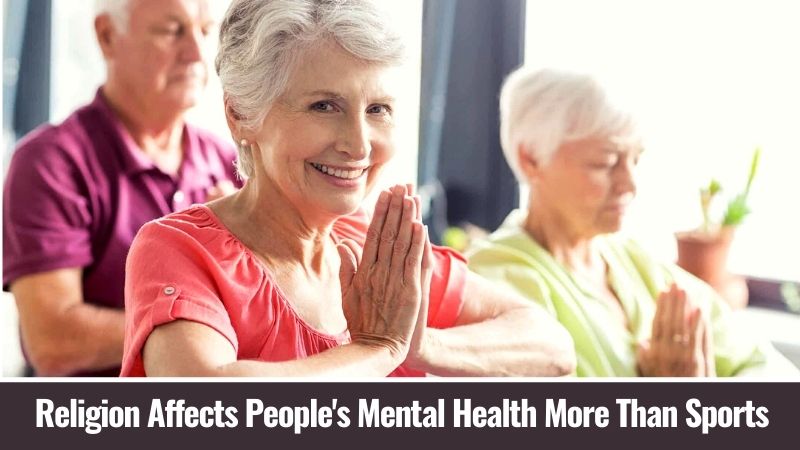Religion Affects People’s Mental Health More Than Sports – Scientists Report

Researchers from the leading US health organizations studied the impact of various social activities on depressive symptoms in older people. They found that participation in religious organizations was directly associated with a decrease in depressive symptoms.
Religion and well-being: what is the link?
According to scientists, participation in the work of a political or social organization (for example, in local branches of a political party) has a detrimental effect on mental health. Membership in sports and social clubs can have a short-term positive impact on mental health, but these forms of leisure do not lead to a decrease in depressive symptoms in the long term, admitted John Baumgardner, a mental health expert and chief pharmacist from Civista Trust Pharmacy.
The study, published in the American Journal of Epidemiology, reached an audience of 9,000 Americans aged 50 and over and continued for four years. Dr. Diana Knapp, a psychiatrist from Catholic Medical Center, says that religious activities such as regularly going to church, mosque or synagogue were cited as the only reliable factor in sustainable mental well-being among all others that came to the attention of scientists.
“The church appears to play a very important social role in curbing depression, and later, during periods of illness, as a coping mechanism for illness,” Dr. Knapp said in a statement accompanying the study. She added, however, that the study does not show which of the factors is more positive – belief in a higher being or a sense of belonging resulting from joining a religious community.
Dr. Knapp added that further research into the influence of religious affiliation could be useful to physicians and psychologists involved in the treatment of mental illness.
“The church can influence something. The kind of cognitive therapy that can be formed from the use of the obtained data in the treatment of such diseases can help in the development of a set of measures to reduce depression among the elderly,” the doctor noted.
According to the World Health Organization (WHO), more than 350 million people worldwide suffer from depression, making it the most common cause of disability worldwide.
According to a 2020 report by the Mental Health Foundation, a leading UK charity for mental health research, religion and spirituality were associated with lower rates of depression. Also, the researchers then recognized that faith helps people cope with post-traumatic stress disorder (PTSD). However, at the same time, it was stated that children with a strict religious upbringing often show pronounced mental problems.
In 2011, Harvard University researchers found that meditation, a practice that takes place in various world religions, including Hinduism and Buddhism, alters the structure of the brain. This, in turn, leads to improved memory and reduced stress.
James Atkin, director of research at Religious Freedom Center, noted in a commentary that religious activity has an additional positive impact on mental health – similar to what brings a person belonging to an active group, such as being a member of a book club or playing on a sports team.
“My feeling is that the difference in the case of religious groups is that … religious belief gives people a sense of purpose, secure identification, and security in relation to your ultimate destiny,” said J. Atkin.
At the same time, Robin Osby, a representative of Secular Coalition for America, disagrees with this statement and believes that the key factor that affects the maintenance of good mental health, is the organic socialization of a person, the absence of social isolation.
“Religion is not a factor of friendship and human communication,” she said. – All claims that religion can have a positive effect on health are beside the point. If you don’t have faith, you cannot just start believing and use your faith as alternative medicine.” She also added that today mental hospitals are full of people who think they hear the voice of God, and it doesn’t seem like religion has improved their mental health.
Category: General
Tags: christianity, health, Mental Health, religion

